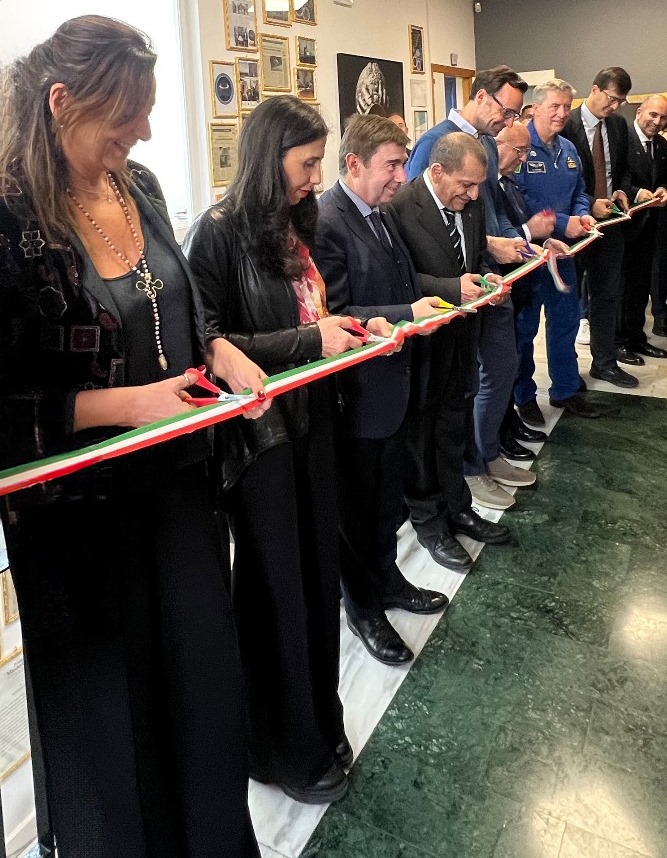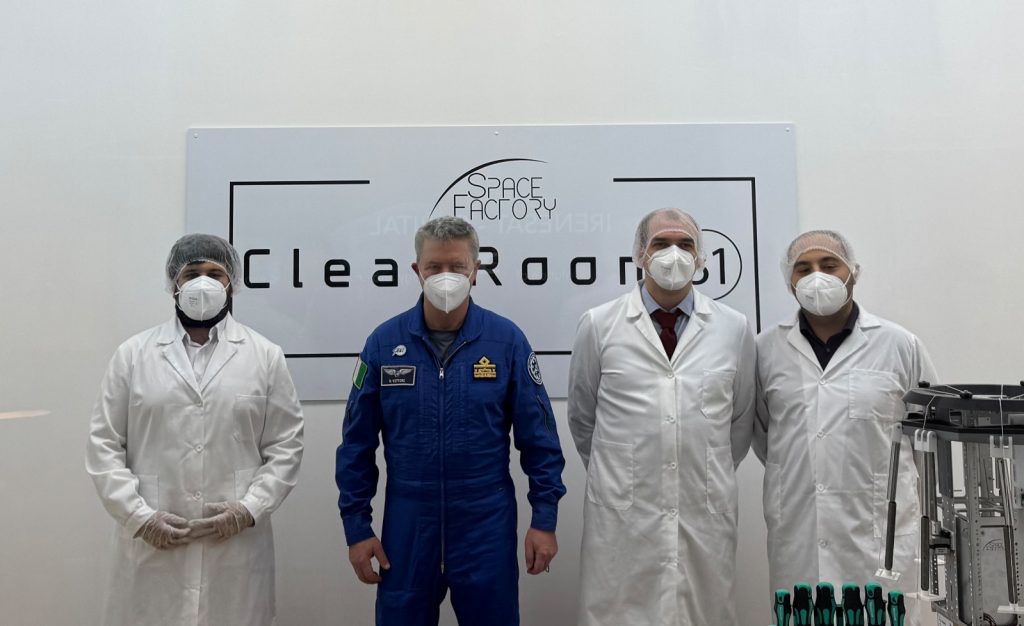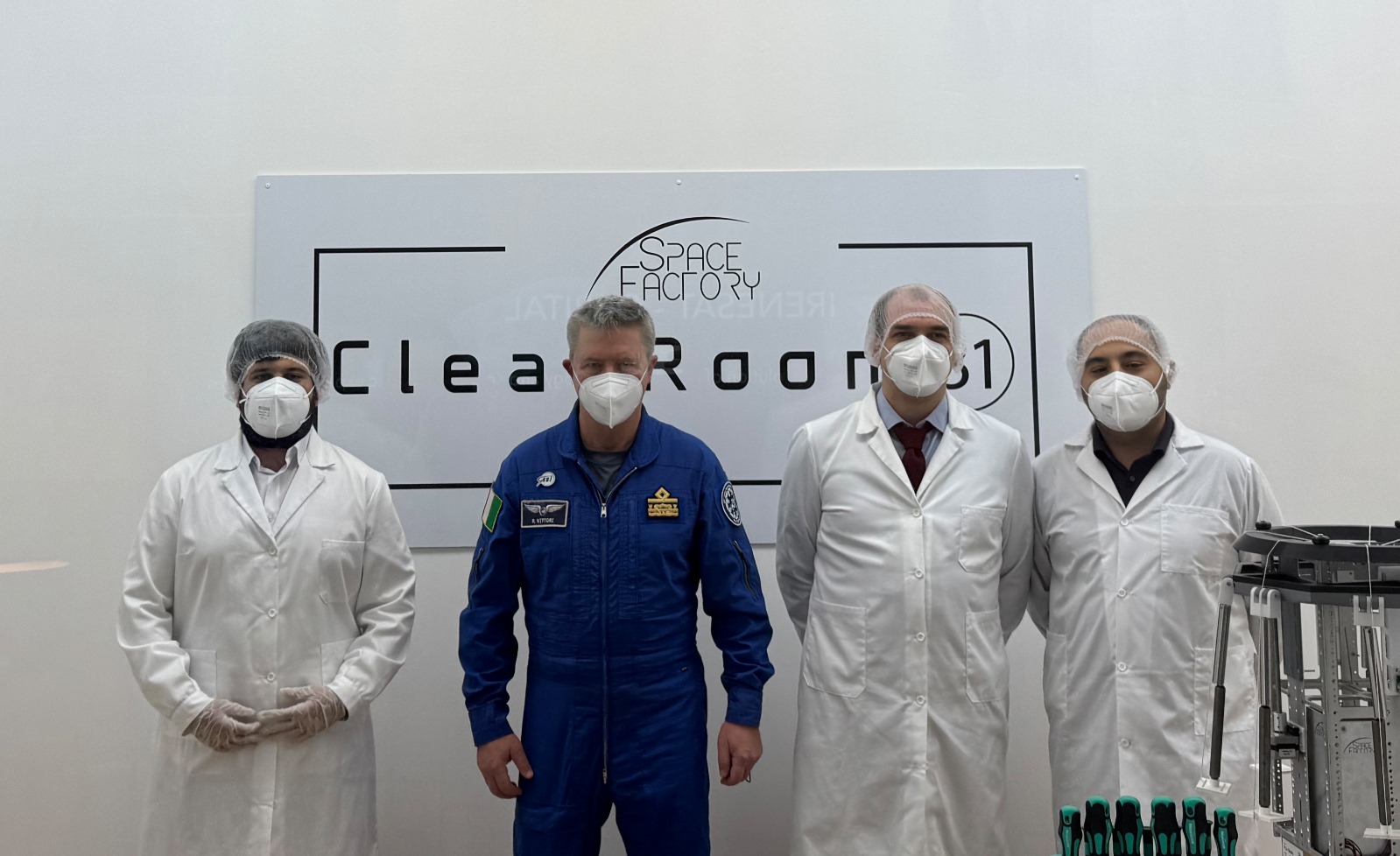The support of the Campania Region, through European resources, to the Aerospace Sector has allowed the development of an industrial group able to attract private capital and to create structures and experiments capable of competing on international markets.
This is the case of the Space Factory Group in Naples which, through the Startup calls and Tech Transfer notices (POR Campania FESR 2014/2020), has developed projects that have then evolved over time. Microsatellites, Thermal Reentry Protection Systems and MiniLab to which has recently been added the construction of a room where to assemble, under sterile conditions, aerospace components.

The Clean Room 31, Named after Italian general, explorer and engineer Umberto Nobile, built at the headquarters of the Space Factory Group at via Gianturco 31 in Naples will allow the integration of the new generation satellites, IRENESAT-ORBITAL and smart mini-laboratories, MiniLab, to carry out biopharma experiments in microgravity conditions. The Clean Room can also become the hub where other companies that need but do not have the resources to have a controlled environment in which to test their projects can find the ideal conditions to develop their experiments.
IRENESAT-ORBITAL It is a proprietary microsatellite, with control and re-entry capabilities programmed from space, its recovery to Earth and reuse, which will provide from 2025 the first commercial service of scientific experiments and biopharma in orbit. The programme’s industrial and scientific partners are Thales Alenia Space Italia – TASI, the University of Naples Federico II – Department of Industrial Engineering, the Italian Aerospace Research Centre – CIRA and a network of qualified SMEs. The launch of the first satellite, IREOS 0, is expected in 2025.
MiniLab is a mini-laboratory with proprietary technology of 2U size where scientific and biopharma experiments are carried out in microgravity conditions. Model 1.0 is currently operational and has already carried out four successful scientific experiments on the International Space Station (ISS) since 2021. Two new models are expected to be launched in 2025, 2.0 and 3.0. MiniLab 2.0, which will be used on orbiting stations/sounding rockets, will provide, unlike Model 1.0, interactive capability for remote monitoring and management of the experiment. The MiniLab 3.0, which will be installed on the IRENESAT-ORBITAL microsatellites, will give the possibility of remote management of the experiment in orbit, also allowing the implementation of corrective actions.
The new mini-laboratories will also have two travel options. Go to the orbiting station or go to our microsatellites. This second option will allow a departure not subject to cargo going to the orbiting station and the definition of a precise reentry point on the mainland, reducing the costs of departure and recovery logistics activities.
Thanks to these innovations, supported by European funds from the Campania Region, the Campania aerospace industry is able to compete on the international stage.

The inauguration was attended by, among others, Mariano Bizzarri, Professor of Clinical Pathology – Department of Experimental Medicine, Sapienza University of Rome, Director of the National Laboratory of Space Biomedicine; Head of the Scientific Committee for Space Programmes of COMINT – Prime Minister’s Office; Antonio Blandini, President of the Italian Aerospace Research Centre – CIRA; Luigi Carrino (disambiguation), President of the Campania Aerospace District – DAC; Massimo Comparini, Leonardo Space Business Unit, Managing Director; Thales Alenia Space – Italy, President; Mariafelicia de Laurentis, Astrophysics; Valeria Fascione (disambiguation), Councillor for Research, Innovation and Start-up of the Campania Region; Amedeo Manzo, President of BCC Napoli; Mario Mustilli (disambiguation), Founder of Financial Studies; Norberto Salza, President of Space Factory, AU ALI S.p.A.; Roberto Vittori, Astronaut.




